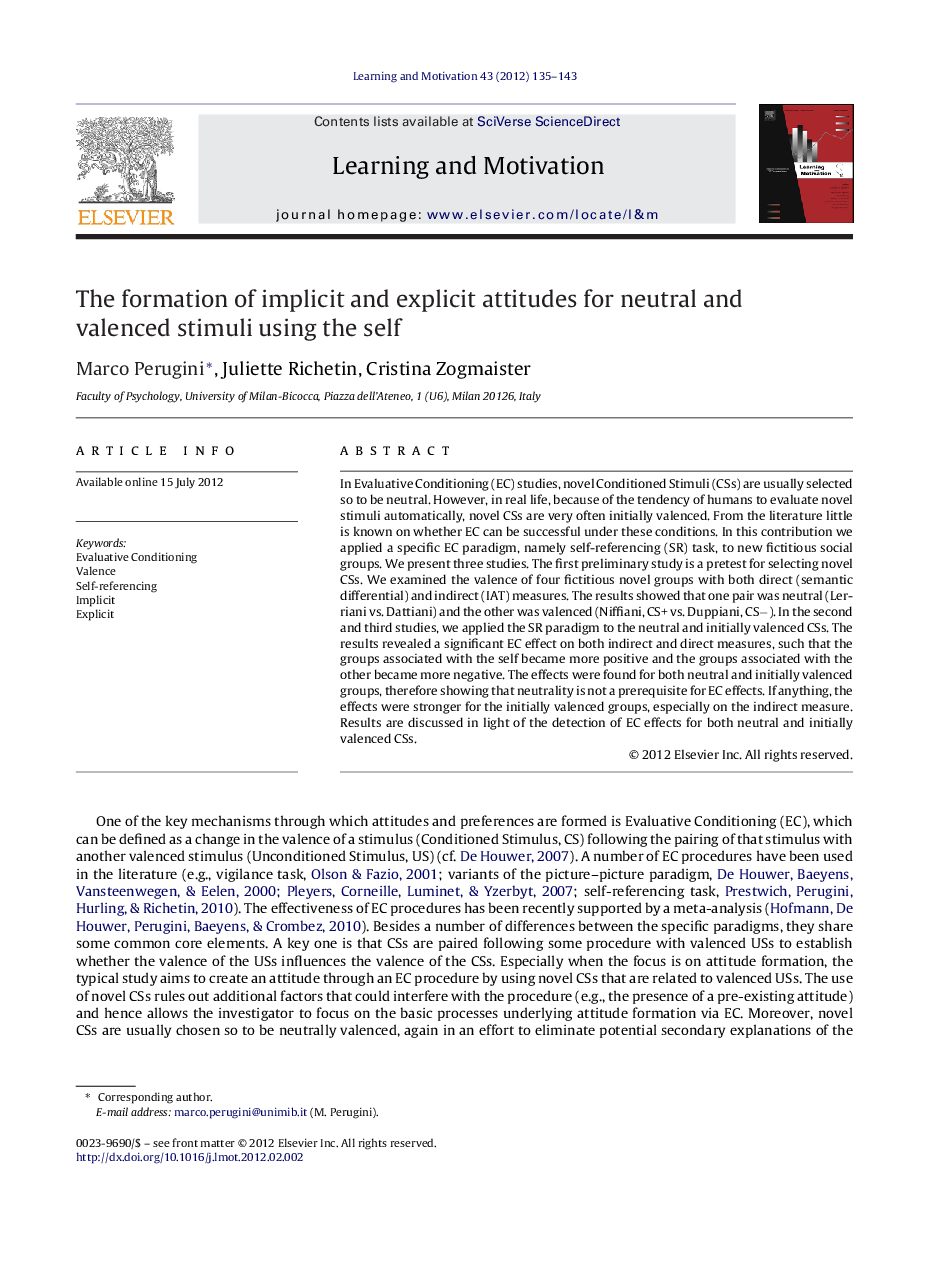| کد مقاله | کد نشریه | سال انتشار | مقاله انگلیسی | نسخه تمام متن |
|---|---|---|---|---|
| 918985 | 919865 | 2012 | 9 صفحه PDF | دانلود رایگان |

In Evaluative Conditioning (EC) studies, novel Conditioned Stimuli (CSs) are usually selected so to be neutral. However, in real life, because of the tendency of humans to evaluate novel stimuli automatically, novel CSs are very often initially valenced. From the literature little is known on whether EC can be successful under these conditions. In this contribution we applied a specific EC paradigm, namely self-referencing (SR) task, to new fictitious social groups. We present three studies. The first preliminary study is a pretest for selecting novel CSs. We examined the valence of four fictitious novel groups with both direct (semantic differential) and indirect (IAT) measures. The results showed that one pair was neutral (Lerriani vs. Dattiani) and the other was valenced (Niffiani, CS+ vs. Duppiani, CS−). In the second and third studies, we applied the SR paradigm to the neutral and initially valenced CSs. The results revealed a significant EC effect on both indirect and direct measures, such that the groups associated with the self became more positive and the groups associated with the other became more negative. The effects were found for both neutral and initially valenced groups, therefore showing that neutrality is not a prerequisite for EC effects. If anything, the effects were stronger for the initially valenced groups, especially on the indirect measure. Results are discussed in light of the detection of EC effects for both neutral and initially valenced CSs.
► We examine Evaluative Conditioning (EC) effects for novel fictitious groups.
► The EC paradigm used relies on the self as Unconditioned Stimulus.
► We find effects for both neutral and initially valenced groups.
► The effects are shown using both direct and indirect measures.
Journal: Learning and Motivation - Volume 43, Issue 3, August 2012, Pages 135–143